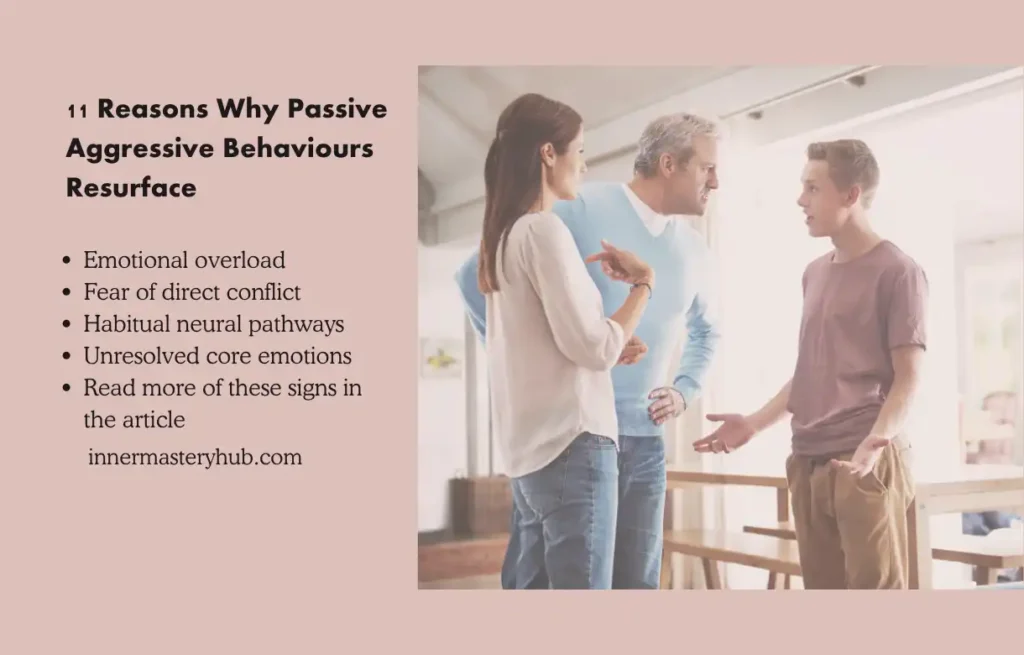Feelings Are Not Facts: 7 Rare Phrases Can Trick You

We’ve all been there: feeling overwhelmed by anger, sadness, or anxiety. In the heat of the moment, it can be easy to believe that our feelings as facts are absolute truths. But the reality is that feelings are not facts.
In our minds, feelings, and facts are constantly messed up. There are moments when our feelings are so strong that we know they are real. But are we 100% sure that these feelings are facts? Do we have evidence?
Nature of Feelings
Though their natures and durations are different, feelings and emotions are closely related. Emotions are natural, physiological reactions that are often fleeting and triggered by stimuli such as joy or fear.
On the other hand, feelings are longer-lasting, conscious experiences that result from the interpretation and comprehension of emotions, and individual experiences and beliefs shape them.
Why Feelings Are Not Facts?
Feelings are subjective experiences that arise from stimuli, occurrences, or thoughts. They can impact our mood, behavior, and overall perspective, and vary in duration and intensity. But they lack a factual basis. Your feelings may stem from fears ingrained over time through different life experiences, which may be deceptive.
While they are an essential part of human life, we cannot deny their importance; instead, we need to find a balance in managing and understanding them. That’s where the true power lies.
Imagine yourself walking along the road when you spot someone laughing. You suddenly become self-conscious, fearing they are making fun of you. In reality, though, they might be laughing over a joke on their phone or anything entirely unrelated to you.
Instead of being supported by any facts or evidence, your sense of being judged is a product of your fears and assumptions. People are typically more preoccupied with their concerns.
Although fear is a powerful emotion, many of the emotional anxieties we experience in our daily lifestyle—like the fear of not being good enough, of failing, or of being alone—have no basis in reality. They have their roots in deeply ingrained fears and past traumas.
Even while you may have experienced bullying because of your appearance in the past, this does not mean that everyone agrees with the bully.
Our feelings may have a significant influence, particularly when they are based on fear. To understand the roots of our feelings, we must first recognize them. However, given that all feelings are facts and fear frequently distorts them, discerning between feelings and reality becomes vital.
7 Examples of when “feelings are not facts”
When emotions are high.
When you’re angry, sad, or anxious, your brain magnifies problems. Strong feelings can cloud judgment and make minor issues seem huge.
When you assume without evidence.
Feeling sure someone is judging or rejecting you doesn’t mean they are. Always check facts before concluding.
When past experiences trigger you.
Old wounds can color how you see new situations. The feeling is real, but it may belong to the past rather than the present.
When fear leads your thoughts.
Fear can make safe things seem dangerous or impossible. Feeling afraid doesn’t always mean you’re in real danger.
When you’re overwhelmed or tired.
Exhaustion can distort thinking, making emotions feel heavier and situations harder than they are. Rest often restores perspective.
When your inner critic speaks loudly.
“I’m not good enough” might feel true, but it’s a thought fueled by emotion — not objective fact.
When others’ behavior triggers insecurity.
Silence, tone, or misunderstanding can make you feel unloved or unwanted, even when the other person’s intent was neutral.
Impacts of trusting every feeling in us
You may make significant changes in your life by learning to trust each feeling you go through. For instance, you might pass up chances to apply for a job you’re qualified for if you believe that you have feelings of inferiority or low self-esteem.
Similarly, even if following a strict diet is bad for your health, you might stick with it if you trust your thoughts about being overweight.
When you trust your fears, you may avoid things even when the data suggests they’re safe. When someone is depressed, believing everything is bad, they feel heightened hopelessness and make things appear worse than they are. Remind yourself that feelings are not facts and are verifiable.
How to deal with feelings As Facts?
Scientist Anabel Jensen estimates that the body processes emotions in six seconds or less. Extended emotional states beyond this point indicate a deliberate decision to maintain such emotions. Although helpful in life-threatening situations, such as escaping a predator, prolonged emotions might not always benefit us.
If someone doesn’t reply to your message right away, it’s simple to believe they don’t think you’re important anymore and are ignoring you.
But since they might have been involved in something else earlier, these acts are motivated more by a sense of mistrust than by facts. Distinguish feelings from facts, to avoid misunderstandings and stop worrying about nothing!
It’s easy to mistake our emotional response for absolute truths. But the reality is that feelings are not facts. Being able to distinguish between thoughts and feelings is part of our emotional intelligence.
7 common phrases that can trick you when feelings are not facts
Here are seven common phrases that can trick you when feelings are not facts:
- “I feel like everyone hates me.”
→ You feel rejected, but that doesn’t mean people actually dislike you. The emotion might stem from insecurity or a recent conflict, not reality. - “I feel like I’m a failure.”
→ Feeling defeated after a mistake doesn’t make you a failure. It means you’re disappointed — a temporary feeling, not a permanent truth. - “I feel like something bad is going to happen.”
→ Anxiety often predicts danger that isn’t real. The fear feels real, but it’s a feeling—not proof of the future. - “I feel like they’re mad at me.”
→ You might sense tension, but unless you check, you can’t know for sure. Feelings can misread others’ moods or silence. - “I feel like I don’t belong.”
→ Loneliness or self-doubt can make you feel excluded, even when others care deeply about you. - “I feel like I can’t handle this.”
→ Stress can trick you into believing you’re powerless. The truth? You’ve handled tough things before — feelings underestimate your strength. - “I feel like no one understands me.”
→ It’s a painful feeling, but not necessarily a fact. Sometimes people do care — they don’t show it the way you expect.

Inhale (and perhaps take another breath).
The first thing to do when feelings are running high is to step back. Taking deep breaths relaxes your body, which can help you gain some perspective. You may notice your feelings over this short period without letting them control you.
Evaluate Your feelings
After regaining your composure, try to categorize your feelings are not facts. Are you experiencing anxiety, frustration, anger, or another emotion? Bring in your emotional awareness of where you’re coming from and what might be causing the feelings as facts that can be gained by naming your emotions.
Seek Out the Details Using Emotional Reasoning
Let’s now separate the situation from the emotional rollercoaster. Which specific details are you able to identify? Was there a particular instance that made you feel something? Are you making assumptions or drawing conclusions in your response?
Push Your Thoughts
We frequently fabricate stories about situations based on our feelings. Are these stories based on reality? Perhaps you’re exaggerating a minor setback. Provide facts to treat feelings and automatic beliefs to challenge them.
Acknowledge Your Feelings, But Don’t Let Them Control Your Decisions
Differentiate between feelings and emotions from facts. Even if feelings are not facts, they are real. It won’t help to suppress them. Recognize your feelings, but don’t let them control your reaction.
Increase your emotional awareness by reflecting on your behavior and attitudes, as this is a key step toward gaining control over your feelings. Seek mental health professionals or psychotherapists if you don’t find anything that benefits you.
FAQs about Feelings Are Not Facts
What does “feelings are not facts” mean?
It means while feelings are real and essential, they don’t automatically reflect objective reality. Your emotion tells you how you’re experiencing something, but not necessarily what is actually true.
Why is it essential to distinguish feelings from facts?
If you treat every feeling as a fact, you may make decisions based on distorted beliefs, misunderstand others, or overreact. Recognising the difference helps you respond more clearly and realistically.
Does this mean my feelings are wrong or invalid?
No — your feelings are valid as data about your inner experience. But being valid doesn’t mean they’re accurate about external reality. You can feel something and still check whether it’s true.
How can I tell if a feeling is misleading or a fact?
If I ignore my feelings as “just emotions,” am I being denied?
That would be a problem. Feelings should be acknowledged and explored. The key is to use them wisely, not treat them as undeniable facts. They guide you, but don’t control you alone.
What is “emotional reasoning”?
Emotional reasoning is when you conclude, “because I feel this, it must be true”. For example: “I feel worthless → therefore I am worthless.” It’s a known cognitive distortion.
How can this help in relationships?
In relationships, recognising “I feel… but that may not be fact” helps you communicate better, check assumptions (“Is this about me or something else?”) and avoid misinterpreting someone’s behaviour.
Does this mean I should never trust my gut or intuition?
No — intuition and feelings are valuable signals. But they need to be balanced with facts and reflection. Your gut can alert you; your mind checks whether the alert is accurate.
Can this idea help with anxiety or depression?
Yes. In anxiety/depression, people often feel something (e.g., hopeless, unsafe) and treat it as the truth, when it may not be. Recognising feelings ≠ facts is part of healthy emotional regulation.
What practical steps can I take to apply “feelings are not facts”?
Steps: Pause when a strong feeling hits → name the feeling → ask: What is the evidence? → consider alternative explanations → decide action based on facts + values. Practising this builds clarity.






